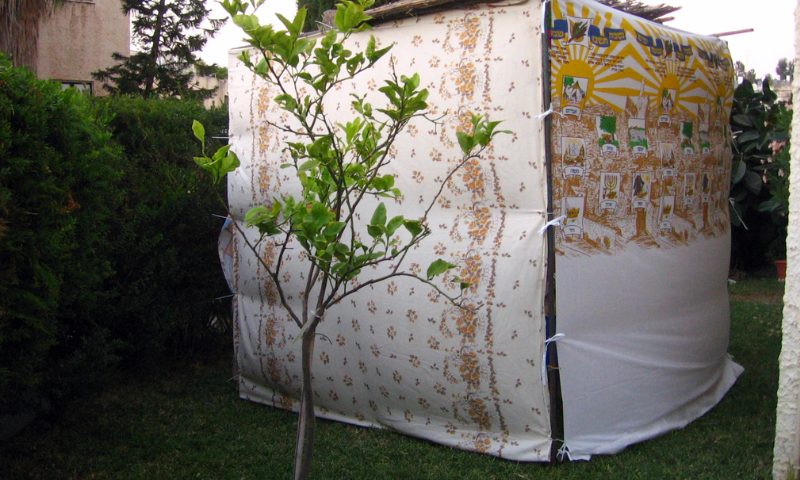Rabbi Lord Jonathan Sacks
Aish, no date
“How odd of God / to choose the Jews,” goes the famous rhyme, to which the answer is: “Not quite so odd: the Jews chose God.” They may have been, at times, fractious, rebellious, ungrateful and wayward. But they had the courage to travel, to move, to leave security behind, and follow God’s call, as did Abraham and Sarah at the dawn of our history.”
What exactly is a sukkah? What is it supposed to represent?
The question is essential to the mitzvah itself. The Torah says: “Live in sukkot for seven days: All native-born Israelites are to live in sukkot so that your descendants will know that I had the Israelites live in sukkot when I brought them out of Egypt: I am the Lord your God” (Lev. 23: 42-43). In other words, knowing – reflecting, understanding, being aware – is an integral part of the mitzvah. For that reason, says Rabbah in the Talmud (Sukkah 2a), a sukkah that is taller than twenty cubits (about thirty feet or nine meters high) is invalid because when the sechach, the “roof,” is that far above your head, you are unaware of it. So what is a sukkah?
On this, two Mishnaic sages disagreed. Rabbi Eliezer held that the sukkah represents the clouds of glory that surrounded the Israelites during the wilderness years, protecting them from heat during the day, cold during the night, and bathing them with the radiance of the Divine presence. Rashi in his commentary takes it as the “plain sense” of the verse.
Rabbi Akiva on the other hand says sukkot mammash, meaning a sukkah is a sukkah, no more and no less: a hut, a booth, a temporary dwelling. It has no symbolism. It is what it is (Sukkah 11b).
If we follow Rabbi Eliezer then it is obvious why we celebrate by making a sukkah. It is there to remind us of a miracle. All three pilgrimage festivals are about miracles. Pesach is about the miracle of the exodus when God brought us out of Egypt with signs and wonders. Shavuot is, according to the oral Torah, about the miracle of the revelation at Mount Sinai when, for the only time in history, God appeared to an entire nation. Sukkot is about God’s tender care of his people, mitigating the hardships of the journey across the desert by surrounding them with His protective cloud as a parent wraps a young child in a blanket. Long afterward, the sight of the blanket evokes memories of the warmth of parental love.
… [To read the full article, clickhere]


